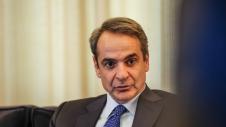The risk of tourists and travel revenues moving lower this year than in 2022 is now visible. It will depend, of course, on weather conditions, but also on the lengthening of the tourist season. In any case, the last two weeks of May, and also June, moved below expectations, while cancellations of bookings have recently been a cause for concern.
During June, there were cancellations of bookings from Germany, reportedly representing 10% of the expected visitors for this year from that country. Indeed, if one takes into account the fact that the German market is one of the most important for Greek tourism, one can understand the magnitude of the loss.
The sudden downturn in bookings from Germany raises doubts about the confirmation of the predictions made so far that 2023 will not only exceed the arrivals and revenues of 2022, but also of 2019, which was the best year for Greek tourism in history, with revenues of 18.2 billion and 31 million arrivals. In 2022, the shortfall compared to 2019 was 11.2% in terms of arrivals and just 3% in terms of revenue, which had reached €17.6 billion.
Speaking to BD, Mr. Lysander Tsilidis, president of the Federation of Greek Travel Agents and Travel Agencies, stresses, "if this year we reach the levels of 2022, I will be happy". He attributes the lower expectations for this year's tourist season primarily to the high appreciation of tourist packages, which moved from 15% to 25%, to the rising cost of airline tickets, but also to Turkey's competitive advantage. "We are in the age of inflation," he said.
Turkey is 15% cheaper
Regarding the neighbouring country, he notes that due to the fact that it is not in the European Union, the state is able to subsidise various cost elements of the tourism industry and, at the same time, the lira is at historically low levels. This gives a competitive advantage because, as he points out, the difference in the price of a tourist package on the other side of the Aegean from Greece is about 15% on average.
However, as Mr Tsilidis says, serious efforts are being made, which seem to be bearing fruit, to open up the markets of Latin America, India and China. At the same time, Russian tourists on charter flights from Kazakhstan and Ukrainian tourists, who come to Northern Greece by road, have started to appear.
It is also worth noting that iconic and particularly expensive destinations, such as Mykonos and Santorini have high rates of decline compared to the same period last year - for Mykonos, there is talk of a drop of up to 30%!
Domestic tourism with state subsidies
Meanwhile, the two programmes of the Ministries of Tourism and Labour ("Tourism for All" and "Social Tourism", respectively) are the ones that are going to support domestic tourism.
All the surveys that have been carried out - by IELKA before the 21 May elections and by SELLPE a few days ago - show the extremely unfavourable position in which a large part of the population finds itself, which, even with significantly increased overall holiday costs, is unable to support the tourism industry as it used to do in earlier times.









